
(Commentary)
Dr. Sein Myint
Mizzima News (www.mizzima.com)
December 13, 2007 - A rumor of the ill health of State Peace and Development Council (SPDC) Supremo, Senior General Than Shwe, has recently been reported in the exile Burmese news media. The question that is on peoples' minds, especially to Burma experts and observers living outside the country is, whether this is true, and if it is, then how will this effect Burma's current political landscape and its "Seven Point Road Map", the political process that the SPDC has embarked upon?
Burmese people are quite used to such rumors since the Ne Win era, where numerous rumors of the death of the late dictator regularly circulated, some purposely by the dictator himself, possibly on the advice of astrologers, making Yadayar to ward off any bad omen cast upon him. This could be another Yadayar by the Senior General, as he has already instructed the planting of "Sunflower or Nay Kyar," meaning 'long stay' in Burmese, possibly with an eye to extending his rule over the "Fourth Burmese Empire".
However if the rumors turn out to be true, then there could be many possible political outcomes and effects upon the current political landscape and on the livelihood of millions of Burma's citizens. Whether in absolute monarchy systems of the past centuries or in modern dictatorships, the death of the ruler or the dictator had little impact on ordinary citizens if power was passed on to a chosen successor. From time to time, however, disputes over the chosen successor led to bloody contests among elites and their lay followers.
Will there be a dispute about succession to the SPDC helm if Senior General Than Shwe dies? It depends upon when, and the time factor will decide who will succeed him. As for now, the lineage seems to be simply in line with military hierarchy. Obviously, Deputy Senior General Maung Aye should be the natural successor, as he is also the Deputy Commander-in-Chief of the Defense Services, Commander-in-Chief of the Army and Deputy Chairman of the SPDC. However, in reality, many analysts and experts are not certain of Maung Aye's prospects to become the next Chairman of the SPDC.
Many have predicted that the current No. 3 of the SPDC, the reserved Than Shwe loyalist, General Thura Shwe Mann, could become the next Commander-in-Chief of Defense Services. He's the current Joint Chief of Staff of the Armed Forces. Others have placed their bets on a dark horse, the current Military Intelligence Chief, Lieutenant General Myint Shwe, another Than Shwe hand picked loyalist.
Since the current Head of State is the Chairman of the SPDC and Commander-in-Chief of Defense Services, whoever becomes the Commander-in-Chief of Defense Services will be the Chairman of the SPDC. He will also be the Head of State, under the current military and political power structure, as Senior General Than Shwe undisputedly holds all three positions.
However, it is difficult to say whether the status quo will hold for the next incoming Chairman of the SPDC. Again, the power structure could be different if General Than Shwe outlived the completion of the Seven Point Road Map. Then according to the current SPDC draft constitution, the Head of State would not necessarily be the Commander-in-Chief of Defense Services, but must have extensive military experience. If they decide to replace the SPDC with another military supreme council ---with members consisting of the top military brass with the Commander-in-Chief of Defense Services at its head--- the Head of State would not necessarily be the head of the military council.
Thus, the division of power between the military and political structures could become more separated. They could be vested in two portfolios instead of the one as it is now. Once the Road Map is completed, resulting in a military-controlled elected parliament or assembly, and all key positions are filled with top military personnel from the current SPDC, it is highly likely that Senior General Than Shwe, if he is still alive, would relinquish the title of Commander-in-Chief of Defense Services, and only take up the Head of State post.
Then the question of who will become the next Commander-in-Chief of Defense Services is a matter of succession by military hierarchy. As of now, the No. 3, General Shwe Mann, would be the next in line after Deputy-Senior General Maung Aye. It has been proven in military history that there is no guarantee who will become No. 1. Once No. 1 decides to remove No. 2 and bring up No. 4 or 5, inevitably pushing No. 2 or No. 3 to break rank with the existing military hierarchy, then all bets are off the table. Once there is a dispute in the military succession process, with multiple camps trying to grasp power, then the political structure cannot sustain control over power without military support in the assembly where, as stated in the proposed constitution, 25 percent of representatives are to be from the military.
Moreover, if No. 1 dies before the completion of the Road Map, the succession issue will become more acute and critical. The consolidation of both military and political power in one person would certainly raise the stakes within the SPDC, just like the complications stated above would with respect to military succession. But it would be more complex for a combined political and military succession. Similar parables can be applied here for hierarchical succession processes. Since the stakes are higher to attain, equal to absolute power, a bloody and violent confrontation could ensue if any group or groups decide to break rank with the military hierarchy and go for the top prize.
So far, the SPDC Supremo has managed to hold the military court in order under his command by sharing out power and privileges. Certainly, whoever in the current SPDC line-up assumes the top post, keeping other members in line waiting their turn could prove problematic. The next critical question is: will the next Commander-in-Chief of Defense Services meet with the democratic opposition leader, Daw Aung San Suu Kyi, and embark upon a genuine national reconciliation process? Only time will tell.
Dr. Sein Myint serves as Director for Policy Development with Justice for Human Rights in Burma (JHB).





















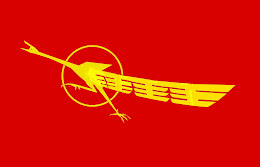





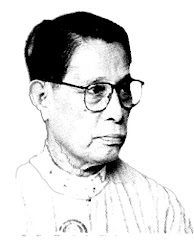


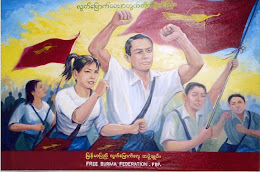





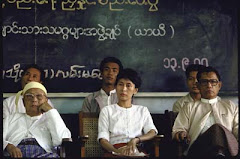

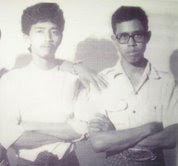

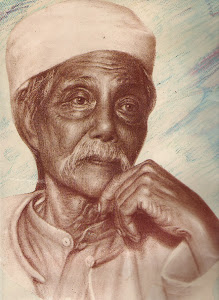
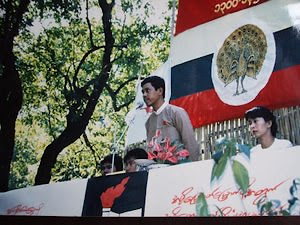
No comments :
Post a Comment